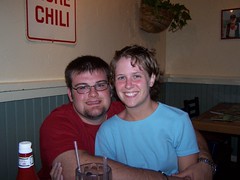January 2005
In the first essay, I spoke of three approaches to culture that Christians take: opposition, assimilation, and engagement. I argued that engagement, in which discernment about the good and bad in society, was the only proper route for us. In this essay, I want to give a very concrete example of that.
Recently, a Dallas Seminary graduate, one of my former students, went to the annual conference of the Society of Biblical Literature/American Academy of Religion. These two societies have met together for years, though they will be going their separate ways in the not-too-distant future. But with them meeting in the same place, a person who is a member of one society has the opportunity to hear lectures in the other.
For those who don’t know about these societies, here’s a thumbnail sketch. The Society of Biblical Literature (SBL) is the world’s largest society of biblical scholars. It is over 120 years old. Every year, in November, the society meets somewhere in
Now, to be sure, not all 10,000 people in attendance are in the same room at the same time! Rather, there are scores of meetings taking place simultaneously over the three-day period. And there are meetings that specialize in various disciplines and sub-disciplines. There is a group that focuses just on Matthew’s Gospel, another on Mark, another on Paul’s letters. There is a group that wrestles just with New Testament textual criticism, another that concerns itself with liberation theology, another with feminist theology, and so on.
Back to my student. Let’s call him Mark for convenience’ sake. Mark attended a meeting that addressed lesbian issues. Yes, lesbian. When he went into the room of 30 or so people, he soon discovered that he was one of the very few in there with a Y chromosome! Soon, he was surrounded by several curious people. They were most curious that men would show up for this conference. They were even more shocked when they saw his name badge and the institute he was from: Dallas Theological Seminary. But he didn’t tuck tail and run. He said he was interested in what they were talking about and wanted to learn. So, he stayed and learned.
He stayed for the whole conference in fact. All three days of it. At the end, one of the leaders of the lesbian group gave the final address. Let’s call her Joan. Joan told of her upbringing, and the message was heartwrenching. She was raised in a prominent religious teacher’s home. Her father was to her rather stern, stand-offish. In fact, he was often alone in his study with his children excluded outside. His life was an emotional desert. Joan said that she did not recall her father hugging her or showing her affection.
Later, Joan came out as a lesbian to many others, but not to her father. She came home and wanted to speak to her father about it. After repeated attempts to engage her father in conversation, she finally told her father that she had become a lesbian. He pondered this for a moment, then did not reply but left her alone.
The next day she found a lengthy written response. It was from her father. In it were all sorts of reasons, especially based on the Bible, telling her why lesbianism was a sin.
This approach by Joan’s father to her lesbianism was the quintessence of an evangelical-modernist approach to evangelism! It was reasoned, biblically-based, absolute, authoritative. And it was icy cold.
When Mark heard Joan’s testimony, he was deeply moved. He came up to her afterward, and said, “Your testimony has truly moved me. I am the father of a little girl, and I don’t want her to grow up feeling isolated from me.” After a brief pause, Mark went on. “I’ve never done this before, but I wanted to ask you something. Would it be OK with you if I hugged you?” Joan nodded.
When Mark hugged Joan, she melted. They both began to sob as she relived the pain of rejection, and Mark, too, was overwhelmed by it. For what seemed like forever, they hugged! She shared how she had longed to be hugged by someone who wanted nothing in return. Where truth had failed, love began to make a break-through.
Mark’s approach was essentially postmodern! He recognized that Joan didn’t need another sermon, didn’t need to have her nose rubbed in the text of Holy Writ. He recognized that she had never really been loved by any man, and by the Spirit’s prompting he became the instrument of God to address her need.
Since that conference, Joan has continued her ways. But she now corresponds with Mark on occasion. Mark does not hold back from declaring his views about lesbianism. But he also does not hold back the love for this woman.
When Mark told me this story, I was deeply moved. I felt as though a huge burden had been lifted off my shoulders, for here was a man who came through an evangelical seminary yet was bold enough to become all things to all people, even if his training didn’t adequately prepare him for that. I felt free to love in a way that I had not in years.
May God raise up more Marks for his glory! And may we all have compassion on the lost, “practicing the truth in love” (Eph 4.15 [NET]) as we share the good news of Jesus Christ in a postmodern world.

2 comments:
fascinating, I'm soliciting comments on my blog on this. Does this continue?
did I spell your name right?
Post a Comment